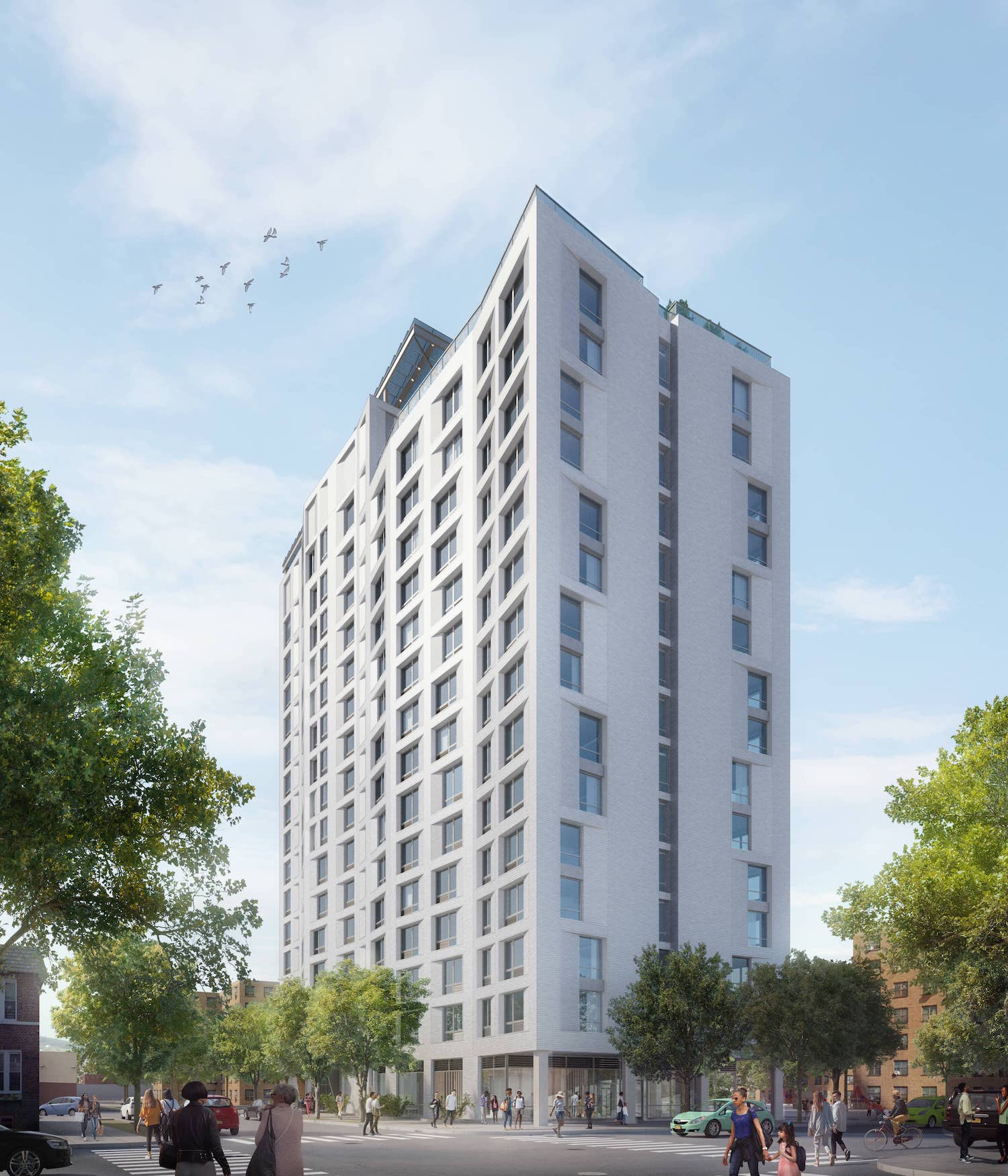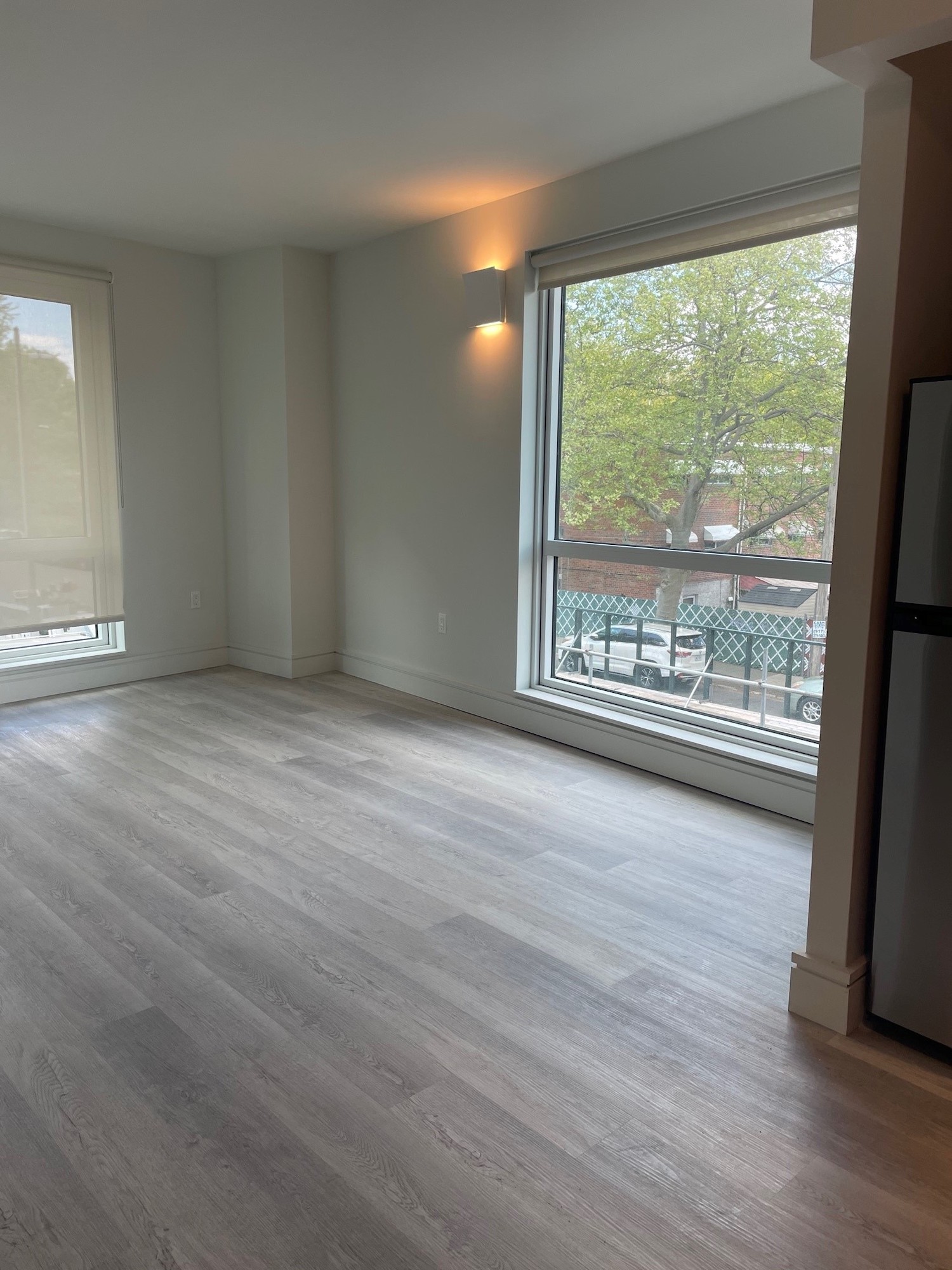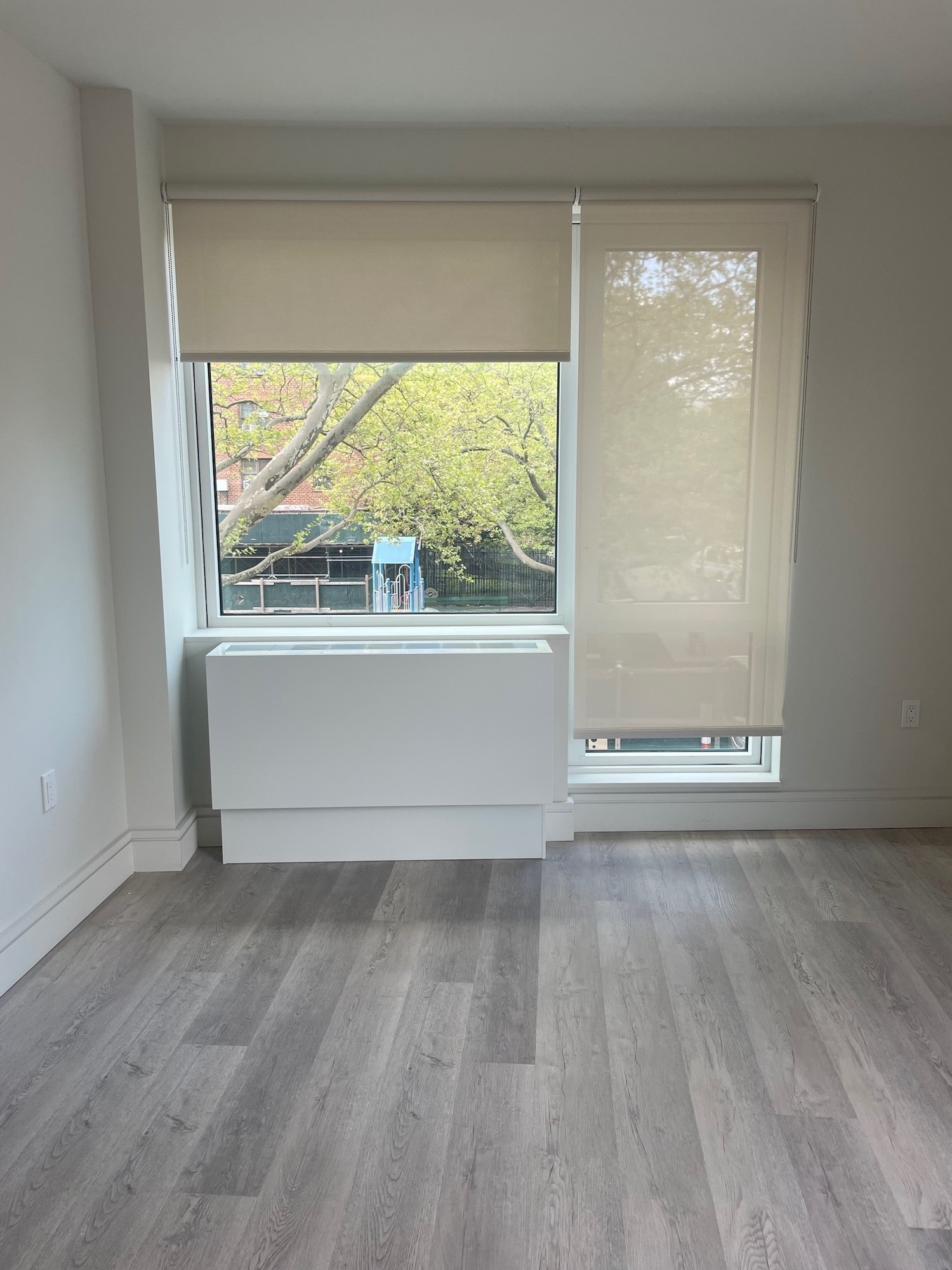
Agreement Reached To Provide Greater Discretion for Judges To Set Bail for the Most Serious Crimes; Includes $772 Million to Address Gun Violence, Reduce Recidivism, and Support Criminal Justice System in Pandemic Recovery
Governor Keeps Promise to New Yorkers: No Income Tax Increases for FY 2024 Budget
$1 Billion Plan Will Fix New York State's Continuum of Mental Health Care
$100.7 Million To Protect Abortion Access and Strengthen New York State's Safe Harbor Access
Major Investments in Education Include $24 Billion To Fully Fund Foundation Aid, $2.4 Billion in New Capital Projects for SUNY and CUNY
Tenants, Including NYCHA and Section 8, Will Receive $391 Million in Emergency Rental Assistance Program Funding
Stabilizes MTA Funding, Avoiding Looming 'Fiscal Cliff' or Service Cuts While Investing in Public Transit Statewide
Transformative Investments To Promote Energy Affordability, Reduce Emissions, and Clean Air and Water
Raises Minimum Wage to $16 in New York City, Long Island, and Westchester and $15 Elsewhere in the State, Which Will Increase by $0.50 for Two Years and Index to Inflation After 2026
$1 Billion in Health Care Capital Funding To Create a Stronger Health Care System for the Future
Governor Kathy Hochul today announced the highlights of the historic FY 2024 Budget. The Budget reflects Governor Hochul's bold agenda to make New York more affordable, more livable, and safer by making smart, responsible investments in housing, mental health care, public safety, education, climate initiatives, and more. In keeping with the Governor's promise at the outset of budget negotiations, the FY 2024 Budget does not include any new increases in State income tax.
"With this Budget, we are delivering on our promise to make the Empire State a more affordable, more livable, safer place for all New Yorkers," Governor Hochul said. "These bold investments will lift up New Yorkers of today - and tomorrow - while maintaining a solid fiscal footing, and I thank my partners in the Legislature for their collaboration throughout this process."
In addition, the legislature agreed with the Governor's proposal to further increase the statutory limit on allowable rainy day reserves. This will allow the State to continue to set aside unplanned resources to guard against future economic downturns.
- $347 million-a $120 million increase from the FY 2023 Budget- for programs designed to prevent and reduce gun violence, including but not limited to:
- $84.1 million for youth employment programs, of which $37 million is for programs in Gun Involved Violence Elimination (GIVE) jurisdictions.
- $70 million for communities to respond to the aftermath of gun violence, of which $50 million is for community capital needs.
- $36.4 million for the GIVE initiative.
- $31.1 million for crime reduction, youth justice, and gang prevention programs.
- $25.9 million for State Police Community Stabilization Units.
- $25 million for the SNUG Street Outreach program.
- $7.4 million in additional funding to establish a Supervision Against Violent Engagement program and expand the State's response to gun violence among the parolee population in GIVE jurisdictions.
- $170 million to support improvements to the discovery process for prosecutors and defenders, including $50 million in capital for discovery technology improvements in New York City.
- $100 million in aid for prosecution and defense funding across the state.
- $92 million to offset county costs related to increasing rates paid to lawyers assigned to represent low-income New Yorkers. The Budget increases assigned counsel rates to $158 per hour statewide.
- $31.4 million for alternatives to incarceration programs.
- $20 million for pretrial services.
- $11.5 million for reentry services to help individuals reintegrate to their communities after serving prison sentences.
- $105 million to upgrade the State Emergency Operations Center.
- $100 million to purchase and renovate a new satellite crime laboratory for the State Police.
- $66.7 million to increase the number of State Police academy classes.
- $25 million to provide capital grants to volunteer fire departments for construction, renovation, or purchase of facilities and equipment.
- $20 million to assist counties in transitioning to Next Generation 911.
- $10 million to provide stipends to volunteer firefighters who complete foundational training.
- $16 million for the state-supported Crime Analysis Center network.
- $7.4 million to allow State Police to keep pace with technology in criminal investigations.
- $7 million to establish an Anti-Fentanyl Innovation Grant.
- $5 million to provide financial assistance to victims and survivors of domestic violence.
- $890 million in capital to develop new residential units, plus $120 million in annual operating costs.
- $25 million in capital and $7.3 million annually to increase operational capacity for inpatient psychiatric treatment.
- $60 million in capital and $121.6 million annually to expand outpatient services.
- $28 million annually to improve post-discharge connections to services through the creation of 50 new Critical Time Intervention care coordination teams.
- $30 million annually to expand mental health services in schools.
The FY 2024 Budget allocates new funding for abortion providers and reproductive health to include:
- $25 million in recurring support for additional Support Abortion Access Services.
- $10 million in Security Grants for Reproductive Health Centers (one-time).
- $65.8 million in additional Medicaid reimbursement ($14.1 million state share):
- $14.9 million to increase surgical abortion reimbursement;
- $35.2 million to increase family planning reimbursement; and
- $15.6 million for Pharmacist Prescribed Contraceptives.
Funding for education includes:
- $24 billion for Foundation Aid - a $2.6 billion increase from last year - to deliver on Governor Hochul's promise to fully fund Foundation Aid for the first time in history.
- $150 million expanding prekindergarten to 20,000 children across the state, bringing the State's annual investment to more than $1.2 billion.
- $134 million to increase access to free school meals.
- $20 million for Early College High School and Pathways in Technology Early College High School funding to allow students to earn college credits in high school, prioritizing students in high-need school districts.
- $2.4billion in new funding for SUNY and CUNY capital projects to upgrade campus facilities and make strategic investments to support innovation and the growth of both systems.
- $381million in new operating support for SUNY and CUNY campuses.
- $500 million to create the first-ever New York State matching fund for contributions made to the endowments of SUNY's four university centers.
Funding for housing includes:
- $391 million for the Emergency Rental Assistance Program to support additional tenants and families, including NYCHA and other public housing residents and recipients of federal Section 8 vouchers.
- $50 million for a Homeowner Stabilization Fund to finance home repairs in 10 communities across the state that have been identified as having high levels of low-income homeowners of color and homeowner distress. The program is modeled on the $10 million Buffalo East Homeowner Improvement Program.
- $40 million for the Homeowner Protection Program, which provides funding to dozens of nonprofit housing counseling and legal services organizations around the state to help homeowners in default and foreclosure.
Governor Hochul has worked tirelessly with partners in the MTA, New York City, and the State to strengthen the long-term fiscal stability of the MTA, while ensuring continued progress in rider safety. The FY 2024 Budget calls for:
- Implementing over $400 million in MTA operating efficiencies to reduce expenses and improve service to customers.
- Increasing the top rate of the Payroll Mobility Tax for the largest businesses in New York City, generating an additional $1.1 billion annually.
- Increasing New York City's share of funding for paratransit services for two years, generating nearly $165 million annually.
- $300 million in one-time State aid to address the extraordinary impact of the pandemic on MTA operating revenues.
- $35 million in investment to improve subway service on weekday middays, weekends and weeknights.
- $65 million to reduce the proposed fare increase on the MTA from 5.5 percent to 4 percent.
- $35 million in safety investments to protect riders.
- Dedicating $1.5 billion in licensing fees if three downstate casino licenses are awarded, and a share of an estimated $231 to $413 million in incremental annual tax revenue from the casinos for MTA operations.
- $15 million to fund a pilot program providing five fare-free bus routes in New York City and expand the Automated Bus Lane Enforcement program to increase bus speeds and decrease collisions.
Governor Hochul will build on her record investing in transit by making a new historic contribution to expand public transit access and affordability while improving public safety on trains, buses, and subways, across the state.
- $9.4 billion in mass transit operating support, including $829 million in operating support for non-MTA authorities.
- $1.3 billion for a commuter-first Penn Station, the Western Hemisphere's busiest transit hub.
- $20 million for bus electrification for non-MTA authorities, and $20 million to rehabilitate NFTA's light rail system.
The FY 2024 Budget will include:
- Creation of the financial foundation that is required to support an economy-wide "Cap and Invest" program going forward.
- $400 million to provide relief to New Yorkers experiencing high electric bills as well as lowering energy burdens through electrifications and retrofits.
- Requirements for advancing zero emission construction in new buildings and requires NYPA to complete decarbonization action plans for 15 of the highest-emitting state facilities.
In addition to forthcoming investments from the historic Environmental Bond Act passed by voters in 2022, the Enacted Budget includes:
- $500 million in clean water infrastructure funding, bringing New York's total clean water infrastructure investment to $5 billion since 2017.
- $400 million for the Environmental Protection Fund.
- Authorizing Suffolk County to put a ballot referendum to the voters to implement a long-term plan to create a recurring funding source for wastewater infrastructure needs.
- $200 million for the Office of Parks, Recreation and Historic Preservation to invest in enhancing state parks.
The Budget includes:
- $1 billion to invest in local economies, including:
- $225 million in grant funding and tax credits for the Regional Economic Development Councils.
- $100 million each to fund an additional year of the Downtown Revitalization Initiative and NY Forward.
- $50 million for the RESTORE New York Communities Initiative.
- $400 million for the NYWORKS Economic Development Fund.
- Almost $200 million for projects that support community growth and enhancement.
- $45 million to be made available to GO-SEMI - the Governor's Office of Semiconductor Expansion, Management, and Integration to lead the growth of the state's semiconductor industry.
- Civil service exam fee waivers to rebuild New York State's government workforce through critical initiatives to be administered through the Department of Civil Service and Office of General Services.
- Expansion of the New York Film Tax Credit to $700 million.
- Creation of a Youth Jobs Connector program to provide educational support and job training to unemployed and underemployed people ages 16 to 24.
The Budget also includes actions to invest in child care and support working families:
- Expanding the Empire State Child Credit to include children under four years of age.
- Provide $179 million in total support for over 525,000 low and middle-income taxpayers thanks to the inclusion of nearly 630,000 additional children.
- $500 million in underutilized federal funds to create a state Workforce Retention Grant Program to support New York's child care workforce.
- $4.8 million investment in a new Employer-Sponsored Child Care Pilot Program.
- Establishes 'Employer Child Care Tax Credit' for businesses that create new child care options and expand existing programs for their workers.
- Substantial Medicaid reimbursement rate increases - a 7.5 percent increase for inpatient hospital services, an up to 7.5 percent increase for nursing homes, and a 6.5 percent increase for outpatient hospital services and assisted living providers.
- This transformational change will provide a $1.2 billion annual gross benefit to health care providers, on top of a State investment of $500 million to support financially distressed hospitals.
- $1.7 billion to fully fund the consolidation of Wadsworth Laboratories' five unconnected sites to one site on the W. Averell Harriman Campus in Albany by 2030.
- $1 billion multi-year health care capital program to drive transformative health care investments, including $500 million to support investments in technology and cybersecurity.
- $419 million gross investment to improve coverage and expand access to preventive and primary care services for Medicaid beneficiaries.
- $120 million gross investment to expand the Medicaid buy-in program.
- $39 million to reduce the risk of lead exposure in rental properties.
- $36 million gross investment to increase Medicaid reimbursement rates for medical transportation.
- $28 million to support the creation of a new nation-leading health monitoring and surveillance system to inform targeted and appropriate responses to public health crises and to drive broader health care insight.
- $8 million to revitalize the State's Emergency Medical Services system.
- Increase the cigarette tax by $1.00 - establishing the strongest cigarette tax in the nation.





